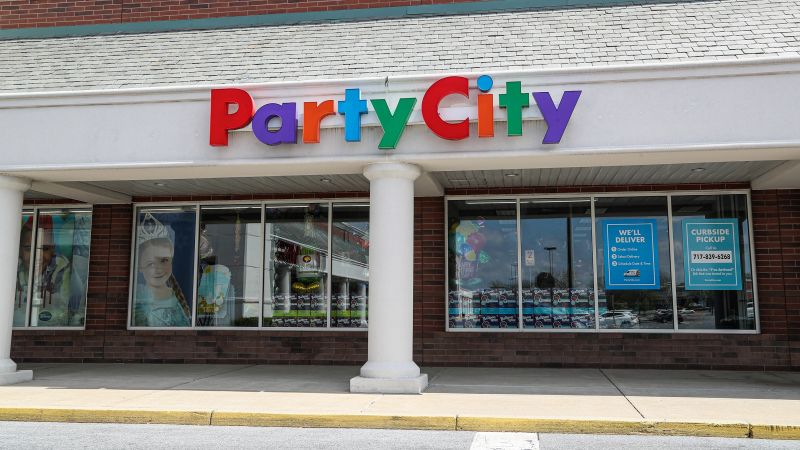Party City, the well-known party supply retailer in the United States, is shutting down all its stores, marking the end of nearly four decades in business. CEO Barry Litwin broke the news to corporate staff in a somber meeting, emphasizing that the company's best efforts were insufficient to overcome its financial struggles. Litwin expressed his sorrow, stating that delivering such a message was the most challenging task he has had to undertake.
The New Jersey-based company, under Litwin's leadership, had aimed to fortify its financial stability, with a focus on addressing the challenges ahead. Despite exiting bankruptcy just a month after Litwin's appointment, Party City was unable to bounce back fully. The company faced mounting debt issues, with over $800 million still looming, impacting its earnings throughout this year. Party City had managed to slash a significant portion of its debt through its previous bankruptcy, allowing it to keep most of its 800-plus stores operational, albeit with closures of some branches.
Within the retail landscape, Party City was confronted with fierce competition from online retailers and seasonal competitors like Spirit Halloween. Additionally, the helium shortage during the pandemic further strained its balloon business, while rising costs added to the company's challenges. The intensifying competition, coupled with economic uncertainties due to the current cost of living, contributed to Party City's financial woes.
The retail industry at large is witnessing a wave of bankruptcies and store closures, with major chains being forced to make tough decisions to adapt to changing consumer behavior and economic conditions. Notably, Big Lots recently announced the commencement of liquidation sales across its outlets after a rescue plan fell through, illustrating the challenging environment retailers currently face. Coresight Research forecasts that 2024 may see the highest number of store closures since 2020, suggesting further turbulence ahead for the retail sector.
Party City's closure is not just a reflection of its individual struggles but also a broader indication of the evolving retail landscape. As consumers continue to shift towards online shopping and demand convenience and value, traditional brick-and-mortar stores are under increasing pressure to innovate and adapt. The closure of Party City's stores underscores the need for companies to stay nimble and responsive to changing market dynamics to survive and thrive in the competitive retail industry.
The unfortunate end of Party City serves as a cautionary tale for businesses in the retail sector, highlighting the importance of financial resilience, strategic foresight, and the ability to swiftly adapt to market challenges. As the retail industry continues to undergo rapid transformation, companies that fail to evolve risk facing a similar fate as Party City. Amidst the changing retail landscape, businesses must prioritize agility, innovation, and customer-centric strategies to stay relevant and resilient in the face of evolving consumer preferences and economic uncertainties.

